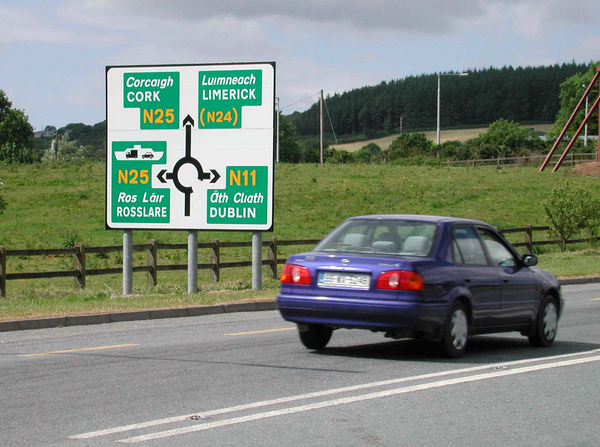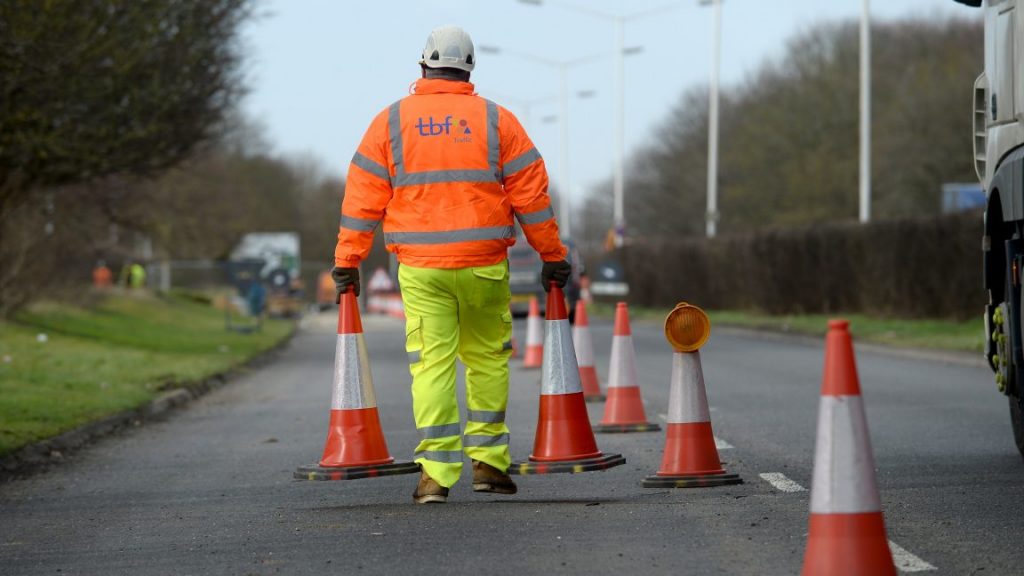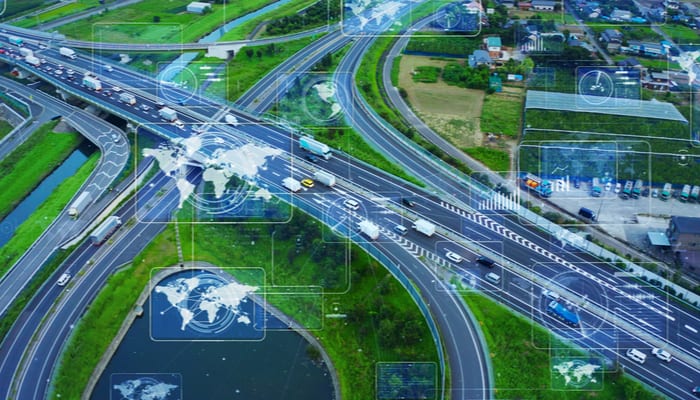When speaking of traffic management, we must begin with clarifying some baseline logistics terms like aggravated congestion. In colloquial language, this is basically what we call traffic jams, caused by a higher number of vehicles per defined section of the road than what is economically desirable.

What makes aggravated congestion to be so frowned upon in the supply chain of businesses and logistics companies are the delays associated with being stuck in traffic. This has a huge knock-on effect on the annual loss of time with shipping, and consequently the bigger operating costs and greenhouse emissions from traffic-affected transportation.

The impact of aggravated congestion in the area of Greater Dublin is tremendous in a measure of time lost due to traffic, and the total annual cost for businesses. An official report analyzing the effects of these on the Irish economy states that in 2012 our country lost an estimated €358 million because of aggravated congestion. This cost is expected to rise dramatically by the year 2033 with up to € 2.08 billion per year. All of this highlights the urgency for dealing effectively with this challenge by imposing innovative traffic and transportation management systems in place and replacing the existing dysfunctional models.
Traffic management Vs. Transportation management
In order to proceed with giving you some useful tips about combating traffic congestion, we need to make sure there is no confusion about these two terms and the different types of management involved. Managing traffic really comes down to reducing the likelihood of having road accidents or bumpy journeys. These could easily be prevented by traffic managers that are in charge of setting up new speed limits, toll booths, or managing traffic flow by means of new interchanges, railroad crossings, carpool lanes, and other practical logistical solutions. With all this being said, you can tell how big the impact could be on tackling aggravated congestion by improving and reshaping the existing road infrastructure.
Transportation management on the other hand is more about the types of practical approaches used by logistics companies to streamline their supply chain processes in order to reduce their operational costs and aggravated congestions.

Streamlining is the key
From the perspective of a logistics business, transportation management is of great importance to minimizing the negative impact of traffic on your business and the environment. It takes a certain level of expertise to be able to integrate your entire internal operation by aligning every part of your supply chains such as back-office staff, delivery drivers, and higher management.

Ways to tackle traffic congestion losses
Unfortunately, there’s not a single, nor an easy answer to this. Combatting congestion and the financial losses from it comes with a lot of planning and thinking ahead of time when organizing your supply chain management.
Careful scheduling
One of the easiest approaches to managing transportation more effectively is careful planning of your deliveries following distribution at non-peak hours for traffic. Looking at traffic patterns comes in handy for this type of management so that you can be more efficient the next time you plan your fleet distribution by the time of delivery.
Avoid main roads
Highways are notorious for congestions and traffic-related problems. Greater Dublin Area (GDA) sees a lot of aggravated traffic in the section between M50 and the canals. Our advice here is to follow the travel news and avoid main roads where possible.

More distribution centers rather than a single big one
This tip comes from our own experience in logistics and how we manage our distribution system. We have numerous depots scattered around Dublin, GDA and across Ireland, to ensure that we have quick and easy distribution to all of the designated destinations. This approach alleviates the problem of dealing with congestion significantly and reduces the operational costs of the logistics company down the line.
Technological solutions
It’s no secret that the tech industry has revolutionized transport and logistics in the last decade beyond recognition. We have talked a lot in our previous blog posts about using smart software solutions such as the ones Zendfast created in-house for intelligent route planning and reducing the impact of last-mile delivery challenges in busier cities. We advise every company that manages their own transportation and vehicle feet to get access to the latest technological solutions which will allow them to plan routes wisely and to predict travel patterns based on real data.

Final words
Alleviating the effects of aggravated congestion across Ireland will take more time and collected effort than anyone thinks. However, we believe that combined forces by logistics companies, supply chain managers, and tech companies could lead up to a positive end for dealing with this hefty challenge ahead of time.
